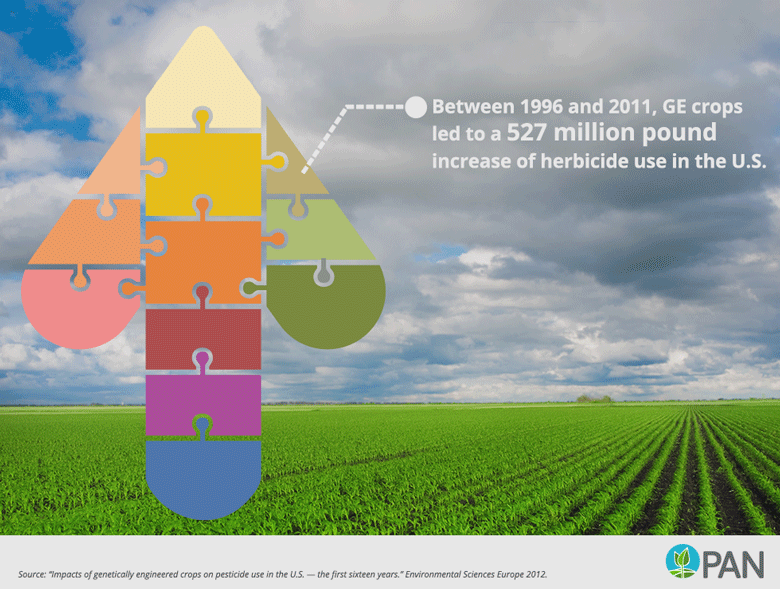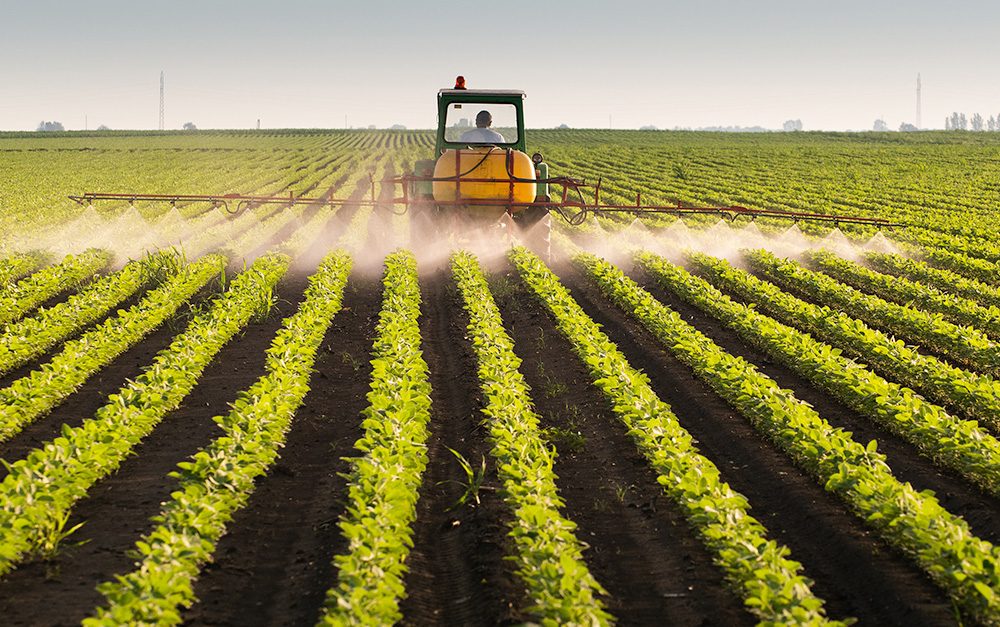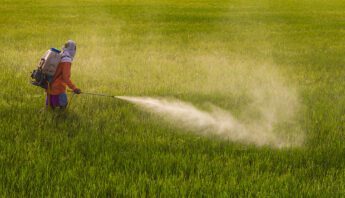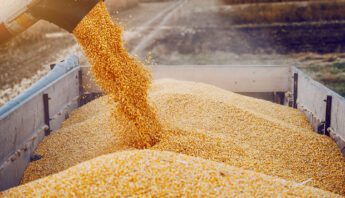According to industry data, most of the genetically engineered (GE) crops planted worldwide are designed for use with chemical herbicides, contain insecticides — or both.
Around the world, GE crops consistently have failed to live up to the promise — as touted by industry — of higher yields and reduced reliance on pesticides. Instead, these patented GE seed and pesticide packages have dramatically driven up the use of harmful chemical inputs — placing the burden of increased costs and health risks on farmers and local communities.
The “dirty little secret” of the pesticide/biotech industry? GE seeds increase pesticide use by design, intentionally boosting market share for corporations like Bayer (now merged with Monsanto) and DowDuPont.

GE seeds sell pesticides
The strategy of stacking seeds with herbicide-resistant traits is deeply flawed. As “superweeds” and “superbugs” evolve resistance to GE crops and their associated pesticides, farmers resort to more chemical use, not less.
Not surprisingly, the same big biotech corporations that develop GE crops also manufacture pesticides engineered to accompany their seed products, which are the growth engines of the pesticide industry’s sales and marketing strategy. For the bottom line of these corporations, GE technologies are paying off.
For farmers, consumers and the food system? Not so much.
A package deal
Analysis of USDA data out of Washington State University shows that adoption of GE crops in the U.S. resulted in a 527 million pound increase in herbicide use between 1996 and 2011.
In 2011 alone, GE crops used 20 percent more pesticides on average than non-GE crops.
For the past 20 years, the primary herbicide used with GE crops was Bayer’s (Monsanto) flagship product RoundUp, with the active ingredient glyphosate. Now that weeds have developed resistance to glyphosate and human health concerns are emerging, this strategy has clearly run its course.
Bayer (Monsanto) and DowDuPont have now joined forces to bring a second generation of GE seeds to market — including 2,4-D-resistant corn and soy approved in 2014 — with the clear intention of duplicating the failed RoundUp Ready model.
Follow the money
As GE technology fails to live up to its promises worldwide, Bayer (Monsanto), DowDuPont, Syngenta and BASF — big biotech and pesticide corporations — continue to reach for profit.
With widespread sales of GE seeds and their accompanying pesticides dominating the market, profits for agrichemical corporations continue to rise. Monsanto’s (now merged with Bayer) net income, for example, doubled from $993 million in 2007 to $2 billion in 2008.
Reliance on GE herbicide-resistance has taken over the U.S. seed market in a relatively short period of time. Since their introduction in 1996, glyphosate-resistant soy climbed to 54% of U.S. acreage by 2000 — and accounted for 92% of U.S. soy acreage by 2008.
And not only are GE seeds more expensive than their non-engineered conventional counterparts, most are used with specific herbicides that cannot be substituted with cheaper varieties. The price of RoundUp Ready soy seeds tripled from $6.50/bag in 2000 to $17.50/bag in 2009.
Stopping the pesticide treadmill
We see it happening around the globe. Farmers in the U.S., India, China, South Africa and beyond are increasingly trapped on a pesticide treadmill — with farming communities exposed to health-harming herbicides.
To Big Ag, these growing pesticide sales are part of the business plan. But there’s too much at stake for farmers and rural communities to let corporate business plans control the food system.
It’s time to make a broadscale shift away from pesticide and GE reliance, and toward agroecological farming that supports resilience, healthy soil, local economies and food aplenty.







